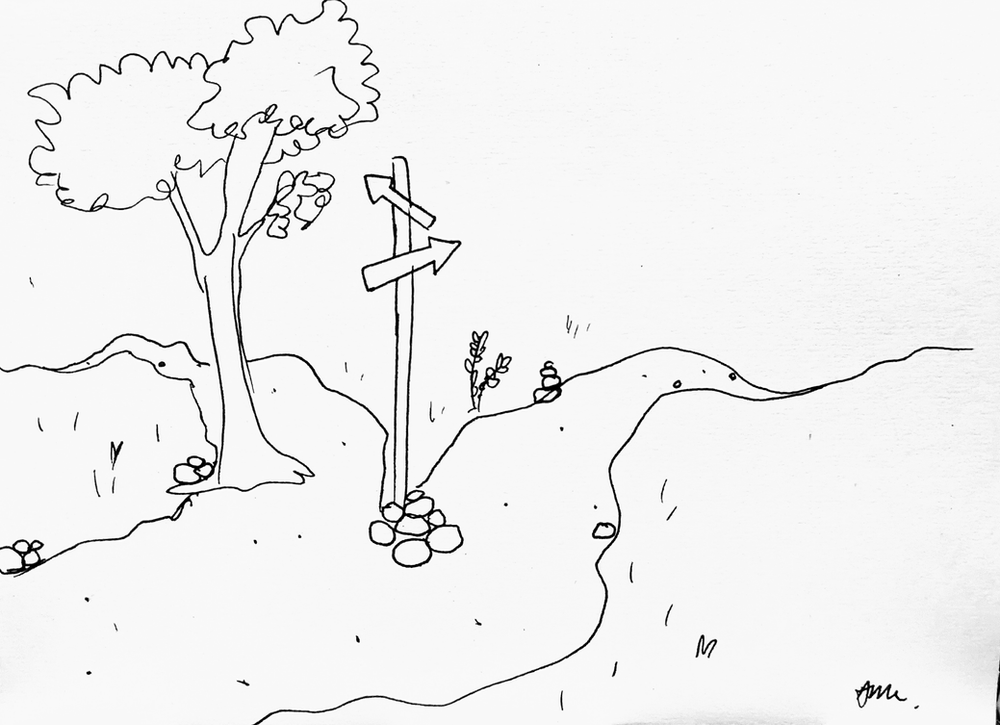Life is full of experiences and many say experience is the best teacher. Provided, that is, we take the time to observe, think, feel, and learn. A current phrase seen in print and heard with our ears these days is that we are currently living in “unprecedented times”. The COVID Pandemic affects our lives and experiences in many and varied ways, individually and collectively.
Some people have voiced positive effects from lockdown – more time spent with family, less time running around, and more time for reflection, relaxation, and perhaps creativity. Some people have voiced that this gave them the opportunity to reassess their lives. Some have decided to be less ‘busy’ and spend more time ‘being’. The pandemic has also generated a tremendous amount of stress, fear, and division among us. Some families have felt tremendous loss of lives and love, bringing sadness, despair, and depression. Some struggle with economic hardship or increased tensions and disagreement among family and friends. Current conversations sometimes refer to the “COVID 15” – the 15 pounds gained during the Pandemic. Cooking websites were swirling with cookie recipes as we tried to comfort ourselves.
In the midst of lockdown one statement uttered by a Philadelphia restaurateur claimed we are “fighting a war”. Though the violence of the metaphor is unappealing, it is thought provoking. So what are the weapons to be used against COVID 19? Are there any that haven’t gotten much publicity or support? One such weapon against any invading organism is the optimally healthy state of the host organism. In other words, if you’re in good health a virus is less likely to take you down. Statistics from the Pandemic have illustrated that 78% of the people who were hospitalized or died from COVID were overweight or obese. (https://www.cnbc.com/2021/03/08/covid-cdc-study-finds-roughly-78percent-of-people-hospitalized-were-overweight-or-obese.html) Other studies have illustrated the likelihood of severe consequences from COVID to be associated with other pre-existing medical problems, such as diabetes, hypertension, heart, lung, and liver problems, etc. It would seem this is a time to shout “work to be healthy” from the rooftops (or the internet) of every government agency, business, and home.
Work to be healthy? It’s extremely difficult to choose to dance to music and reach for a cucumber instead of a chocolate chip cookie in times of stress.
“I can’t do that” resounds from our inner self that’s seeking solace and hope. But the truth is “I can do that” even though it’s uber difficult. Difficult times especially require smart choices. Lifestyle habits that create wellness do not need to be a sacrifice. Real, whole food, clean water, sunshine, sleep, exercise, and positive self-talk move us to the same place of peace and comfort as a cookie – it’s just a different path to get there. The result is a life full of energy and freedom for an organism (human) that is not pained and constrained by sickness nor easily taken down. A lesson from the COVID Pandemic.
“A wise man should consider that health is the greatest of human
blessings, and learn how by his own thought to derive benefit from
his Illnesses.” – Hippocrates
Food can be the best medicine or the slowest poison. There are real food alternatives that are delicious and satisfying. There’s a path to a healthy lifestyle that’s not all thorns and picker bushes. Our psyches often do well with gradual shifts to healthier habits and products so we don’t feel deprived. Perhaps try this recipe below for almond flour pancakes from @LoveandLemons. They’re delicious, gluten free, and very low in carbohydrates (to avoid the sugar that throws our bodies into a disease state). Try topping them with spinach and over-easy eggs (organic, pasture-raised in the sunshine from a local farm) instead of maple syrup for a satisfying and energizing breakfast or brunch.
Almond Flour Pancakes
from https://www.loveandlemons.com/almond-flour-pancakes/#wprm-recipe-container-5191
(The maple syrup has been omitted from the recipe below)
Prep Time: 10 mins Cook Time: 10 mins
Serves 2
These fluffy almond flour pancakes are a hearty, delicious breakfast or brunch! This recipe makes 6 small pancakes. If you’re serving more than two people, you may want to double it.
Ingredients
- 1⅓ cup blanched almond flour*, spooned and leveled (see note)
- 1 teaspoon baking powder
- ¼ teaspoon sea salt
- ¼ cup almond milk
- 2 large eggs
- 1 teaspoon vanilla
- Extra-virgin olive oil, for the pan
Instructions
- In a medium bowl, whisk together the spooned and leveled almond flour, baking powder, and salt.
- In a small bowl, whisk together the almond milk, eggs, and vanilla.
- Pour the wet ingredients into the bowl with the dry ingredients and stir. If your batter is very thick, stir in more almond milk until it resembles the photos above. If it’s too thin, sprinkle in a touch more almond flour. (See photo in the blog post for batter consistency).
- Heat a non-stick skillet over medium-low heat. Brush the pan with a little olive oil and use a ¼-cup measuring cup to pour the batter onto the pan. (Note: these are more delicate than regular flour pancakes so it’s important to make them small). Cook the pancakes for 1 to 2 minutes per side, turning the heat to low as needed so that the middles cook without burning the outsides. I usually turn my heat lower after each batch as my pan starts to hold residual heat. Almond flour pancakes darken a little quicker than pancakes that use regular flour.
Notes
*Super-fine blanched almond flour or homemade almond flour (that uses slivered blanched almonds) is best for this recipe.
Use the spoon and level method when measuring flour so that the flour in your measuring cups doesn’t get too packed down. Too much flour will result in a thicker batter and denser pancakes.


